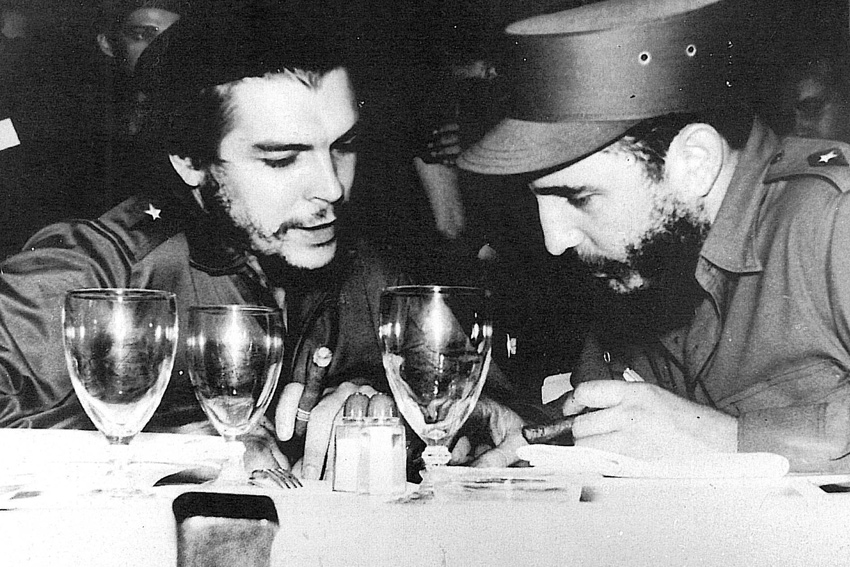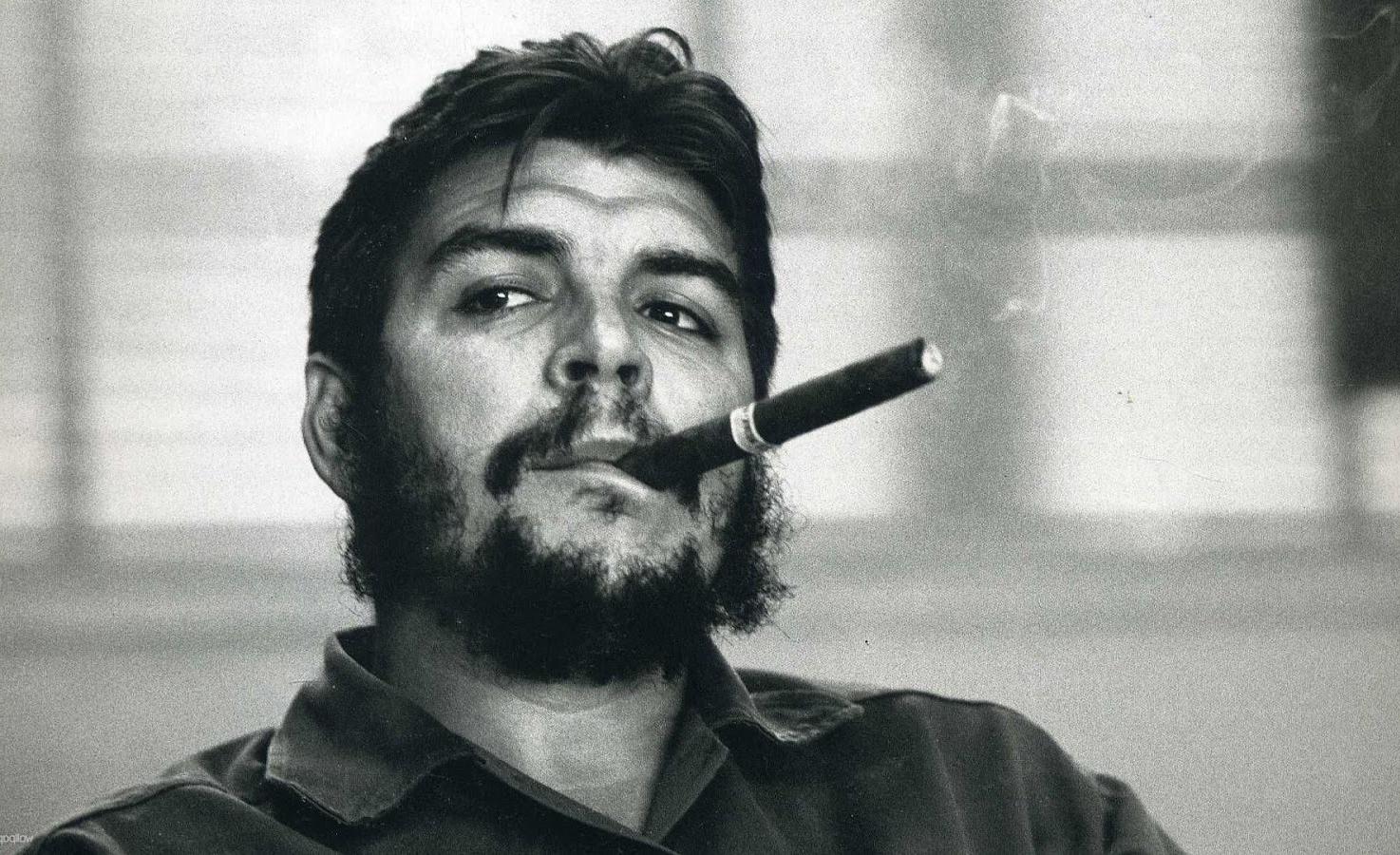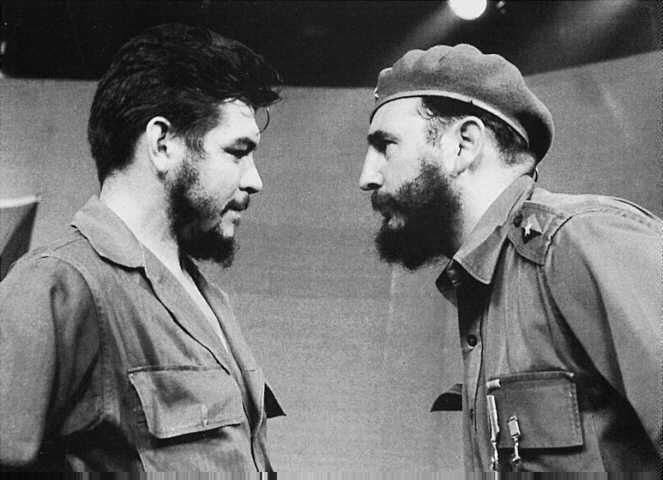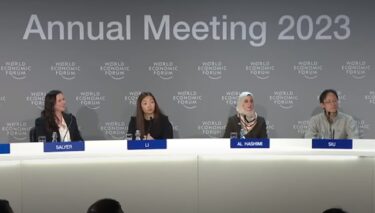As Fidel Castro turns 90 we take a look back to that time he unwittingly appointed Che Guevara head of Cuba’s national bank with unforeseen consequences that are still in effect 56 years later.
While Ernesto “Che” Guevara is most recognized as the Marxist guerrilla whose image is splashed across college campuses and T-shirts the world-round, his little-known stint as the president of Cuba’s national bank (BNC) forever changed the economic landscape of the island state, as well as world geo-politics.
When Presidents Barack Obama and Raul Castro shook hands at the Summit of the Americas in Panama last year, it marked the first meeting between a US and Cuban head of state since the two countries severed their ties in 1961.
However, one key reason as to why the US and Cuba are re-establishing diplomatic ties is to overturn what Che Guevara did between 1959 and 1961, when as president of the BNC, he kicked out all American banks to allow Cuba the freedom to control its own money through a state-run bank.
Castro unwittingly appoints ‘Che the Guerrilla’ as Bank President

Guevara’s brief 456 days as the bank’s president began during a late night meeting in 1959 when Fidel Castro asked who in the room was a good “economista” (economist). Half-asleep, Guevara sat up and raised his hand.
Castro replied with surprise: “Che, I didn’t know you were a good economist,” to which Guevara exclaimed: “Oh, I thought you asked for a good communist!”
From that point on, Che was appointed the head of Cuba’s national bank, and he immediately enacted swift reforms that on the one hand, freed Cuba from American banking interests, but at the same time, caused nearly 50 years of disastrous economic policies.
Che Kicks-Out American Banksters

Guevara had no background in finance or banking, but since he was a successful guerrilla, he conscripted the militia to forcefully remove all US banks out of the country for good.
Those banks “included six branches of the National City Bank of New York (now Citigroup), the National Bank of Boston (Now Bank of America), and Chase Manhattan (now JPMorgan Chase).”
Fidel Castro later regretted his decision to appoint Che as the bank’s president.
“Why I ever did that, I don’t know, because obviously Che Guevara knew nothing about finance and banking,” said Castro, adding, “I put him in there because I guess I trusted him. But it was a mistake.”
Under Che’s presidency, “the flight of hard currency from the country was controlled, the BNC was nationalized, the Organic Bank Law was drafted and the return for counterrevolutionary purposes of capital taken out of the country was avoided.”
Kicking out foreign banking interests and establishing state-control of Cuba’s own money infuriated the United States Government to no end and sparked almost 60 years of hostility between the neighboring countries.
“In February 1962, President John F. Kennedy proclaimed an embargo on trade between the United States and Cuba, in response to certain actions taken by the Cuban Government, and directed the Departments of Commerce and the Treasury to implement the embargo, which remains in place today,” according to the US State Department.
Why Guevara Centralized Cuba’s Banking Industry

Why is it that tensions are just starting to wean between Cuba and the US? Could it be that Cuba may be joining the international banking community? Cuba still has a state-owned bank without international banking influence thanks to Che Guevara’s 456 days of purging the nation from foreign banks, but that may soon change.
Che Guevara knew that the American banks in Cuba had too much influence over business and politics. While his scourge of those banks helped liberate the financial sector, there was no safety net in place to protect the Cuban economy, which would haunt the island nation for over 50 years to come.
In 1960, under Guevara’s watch, Cuba out of the World Bank (WB) membership and refused to become a part of the newly-established Inter-American Development Bank (IDB).
In 1964, Castro kicked out the International Monetary Fund (IMF) — an institution that Cuba actually co-founded.
Not being associated with the three international banking cartels (WB, IDB, IMF) allowed Cuba sovereignty over its own money for decades, although crippling sanctions and debt on loans from Canada and Europe forced Castro to consult American bankers in the 1980s. The Cuban former head of state even admitted that kicking out international banks was a mistake.
Why Guevara’s legacy on US/Cuban relations is important today

Today, relations between the US and Cuba are starting to mend. After 600 assassination attempts on Fidel Castro’s life, he’s still alive and kicking as he celebrates his 90th birthday.
One of the reasons why the US and Cuba are getting back on friendly terms is the possibility that Cuba will enter the global financial system.
“The resumption of diplomatic relations with the United States in July 2015 has raised the stakes, by holding out the possibility of reintegration of Cuba into the global financial system, along with potential access to wider trade relations and new, more market-based sources of external financing,” according to a report by the Association for the Study of the Cuban Economy (ASCE).
If Cuba becomes a member of the IMF, World Bank, and IDB, it will be the first step to unravel Ernesto “Che” Guevara’s guerrilla tactics against foreign banks in the 1960s.
The Atlantic Council reported that Cuba’s absent membership in the IMF, World Bank, and Inter-American Development Bank will have to be overturned for Cuba to prosper.
“To jumpstart Cuba’s economy, he [President Raul Castro] will need to accelerate the fiscal and monetary reforms started in 2008. International financial institutions (IFIs), including the International Monetary Fund (IMF), the World Bank, and the Inter-American Development Bank (IDB), hold the key to easing Cuba through a tough transition to a more stable economic model that will better the lives of its people.”
After nearly 60 years of sanctions, the Cuban people have already suffered greatly. By allowing international banking cartels into the country, Cuba may experience a period of growth, but for how long and at what cost?
International banking interests are what start wars, cause recessions and depressions, as well as massive debt that is crippling countries around the world.
Read More: Big Banking & Oil: Which country do we invade next after Syria?












